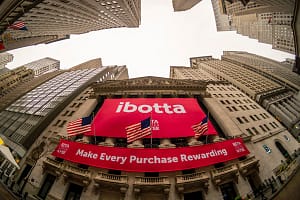The CBD market is an exciting venture that many startups and giant companies alike are keen on. In just six years, from 2021 to 2027, the legal CBD market is expected to reach a compound annual growth rate (CAGR) of up to 35%, according to the latest data from Global Market Insights. It’s not every day that a controversial novel food manages to grasp worldwide attention within such a short span of time. Hence, it’s no surprise that the industry will continue to grow exponentially in the forthcoming years.
With such a brilliant future that lies ahead of the CBD sector, many retailers are jumping into the bandwagon with both feet, determined to capitalise on and take advantage of the increasing consumer demand. As a startup looking to invest in the CBD market, choosing the right CBD manufacturers to work with is one of the most crucial decisions, you’ll make. It’s worth noting that not all CBD products are made equal, and not all brands can attest to the quality.
CBD manufacturers typically offer white label or private label programs for retailers and marketers.
When it comes to choosing a CBD product, many customers probably don’t mind asking whether it comes from a white-label or private-label provider, even much less the disparity between those two. Although the terms “white label” and “private label” are often used interchangeably, and their differences are quite subtle, it still makes sense for retailers to understand which program works best for their brand. This article sheds light on the key differences between white labelling and private labelling, and the role they play in the CBD industry.
What is CBD white labelling?
White labelling refers to the mass production of goods or services to be sold and distributed to the market by another company. Interestingly, the idea of white labelling comes from music industries of the 20th century, where radios used the term “white label” to describe exclusive and unreleased vinyl records that often come in blank labels without any specific branding.
In the CBD industry, white-label organisations manufacture CBD products, which can be purchased in bulk by various retailers and resold to local consumers. Because the products have no particular brand names, retailers can customise them with their own brands and logos, as if they created them in the first place. CBD white labelling services provide an excellent opportunity for startups with limited knowledge of CBD productions or CBD itself.
If you’re quite intrigued with the growing CBD market and perhaps planning to open your own CBD marketplace soon, partnering with reputable white-label services can be a great idea. This helps you save lots of time and money on the entire CBD manufacturing process that requires hiring experts and investing in laboratory facilities, raw materials and machinery. Instead, white label CBD providers allow you to re-brand and resell an already established product. As long as you partner with top-notch white-label companies, you can ensure the quality and authenticity of the products you’re about to sell. That way, you can focus on other important aspects of your business, such as advertising and marketing your brand.
What is CBD private labelling?
Private labelling has been around since the 19th century and was used originally in retail industries. The same premise with white labelling, private-label companies, create wholesale products that can be re-branded and resold to the local consumer market. The only difference is that private labels distribute the products to an exclusive retailer partner under certain terms and conditions agreed upon between the two parties involved. This means private-label manufacturers cannot distribute products to multiple retailers at the same time, unlike white-label providers that produce generic products to be re-branded and sold to various retailers.
White label or to private label?
White label products are often more cost-effective than private label products. With great pricing and marketing strategies, your business can generate great profits by capitalising on white-labelled CBD products, all without the need to go through the hassles and hefty costs of the entire CBD production. However, the competition can be tight among white-label retailers because other brands mostly offer the same exact product to the same target market as yours. Unless you come up with an impeccable marketing campaign that stands out, it can be challenging to outsmart the rising competition among various retailers with the same products.
A great advantage of private labelling is that retailers can choose to make adjustments to the products any way they want upon request. This means that retailers can not just select from a catalogue of already-established products, but they can also get involved in the manufacturing process to become more familiarised with the products they offer to the consumer market. This strategy sets your brand apart from the competition by providing your customers with a unique product line.
White-label retailers, on the other hand, can only re-brand and repackage the product without the power to change its content and formulation based on their customers’ demands. Another significant downside of white-labelled products is that their appearance often seems unappealing due to mass production. Take note that poor packaging designs can give the products an impression of being low-grade or shady.
As appealing as private labelling can be, there are also risks that come with it. Private-label retailers cannot return potentially defective products to the manufacturer because the products are formulated and manufactured exclusively for one specific brand. On the contrary, white-label retailers can rely on their manufacturers when something goes wrong with the quality of the products. Since white-label retailers are not involved in the production, manufacturers are held responsible for any possible issues linked to their goods.
What makes a reputable CBD manufacturer?
Keep in mind that your manufacturer plays a key role in your business, their products can make or break your sales, your customer relationships and your business, in general. Therefore, whether you choose to partner with a white-label or private-label company, it’s crucial to know a couple of things that you should look for in a trusted CBD manufacturer:
Retailers must purchase CBD products from manufacturers with in-house facilities that can accommodate extraction and laboratory for product testing and quality control. Be sure to work with manufacturers that value compliance standards to ensure the safety of your customers. You also want to ensure that your manufacturer can support your business needs throughout your operation, someone willing to assist your product concerns and listen to your inputs and suggestions. As much as possible, look for a manufacturing company that can stay with you as you grow your business and your product needs and demands expand.
Versatility is another key factor to consider if you plan to invest in private labelling. Not all private labels have the ability to customise CBD formulas based on the consumer market’s demands. It’s good to entrust your products to manufacturers that are open to product innovations. For white-label retailers with no access to CBD creation, do not hesitate to ask for a Certificate of Analysis (COA) so you can learn more about the quality of the raw materials being used in CBD formulations. This way helps to ensure that your products meet regulatory standards and compliance.
Most importantly, when choosing from a wide pool of potential CBD manufacturers, make sure to review their pricing points. Aside from the cost per unit, it’s worth estimating additional fees allocated to designing, labelling, packaging and shipping of your products.






Leave a Comment